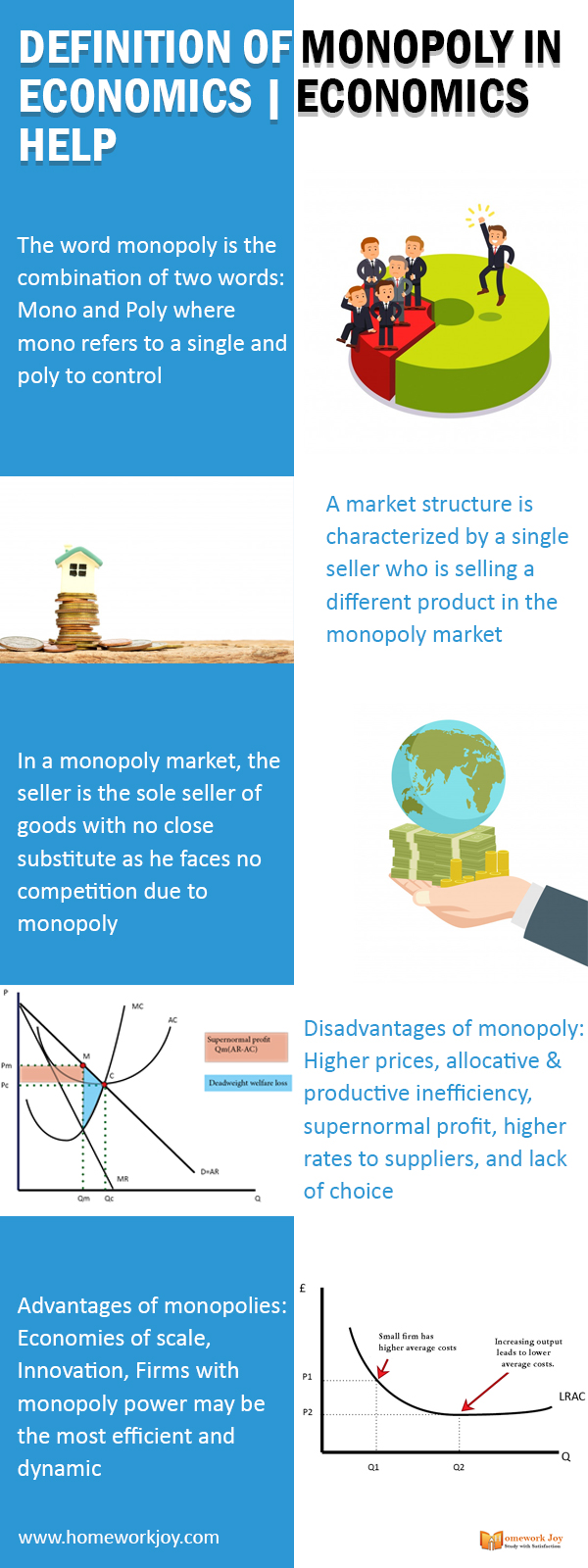The word monopoly is the combination of two words: Mono and Poly where mono refers to a single and poly to control. The definition of monopoly in economics is defined as the only seller of the product, which means a 100% market share. If a company has more than 25 % of share in the market, then it will be in a monopoly. For example, Google has 90% of search engine traffic. Then it is in monopoly. Thus a market structure is characterized by a single seller who is selling a different product in the monopoly market.
In a monopoly market, the seller is the sole seller of goods with no close substitute as he faces no competition due to monopoly. The seller enjoys the power of setting the price for his goods. The elasticity of demand is different at different points on a firm’s demand curve.
Disadvantages of Monopoly
Higher Prices in Monopoly
In a monopoly market, there is only one supplier and may consumers. Thus firms who are in a monopoly enjoy the power of higher prices due to the lack of competition.
Allocative and Productive inefficiency
When a firm is in monopoly, it creates allocative inefficiency because they charge high prices, but they don’t have enough supply. Also, the firm will always be in productive inefficiency because monopolist does not produce at minimum average cost. The prices reflect demand but in case of monopoly price is always higher than marginal cost.
Supernormal Profit
Large firms practice this to earn the supernormal profit, which is a disadvantage to the economy. It means that different prices are charged for the same product. However, it is against the interest of consumers.
Higher Rates to Suppliers
In the monopoly, a firm may use its market power and profit power to the suppliers. For example, supermarkets pay less money to the farmers since farmers have little opportunities to sell. But supermarkets have a whole large market.
Lack of Choice
Consumers in the monopoly face the issue of lack of choice as there are only one seller and many consumers. Suppose if a customer is not happy with the price tag or find it costly, then he has no alternative except not to buy that product.
Advantages of Monopolies
Higher Profits
Since there are no other firms to sell the product, thus firms enjoy a higher profit in the market. This profit can be used for several different purposes in the economy.
Innovation
It increases the urge to launching something new in the market. Thus monopoly serves the purpose of encouraging innovators.
So it was the complete definition of monopoly in economics. If you need any help in economics, then you can get instant Economics homework help from our experts.
